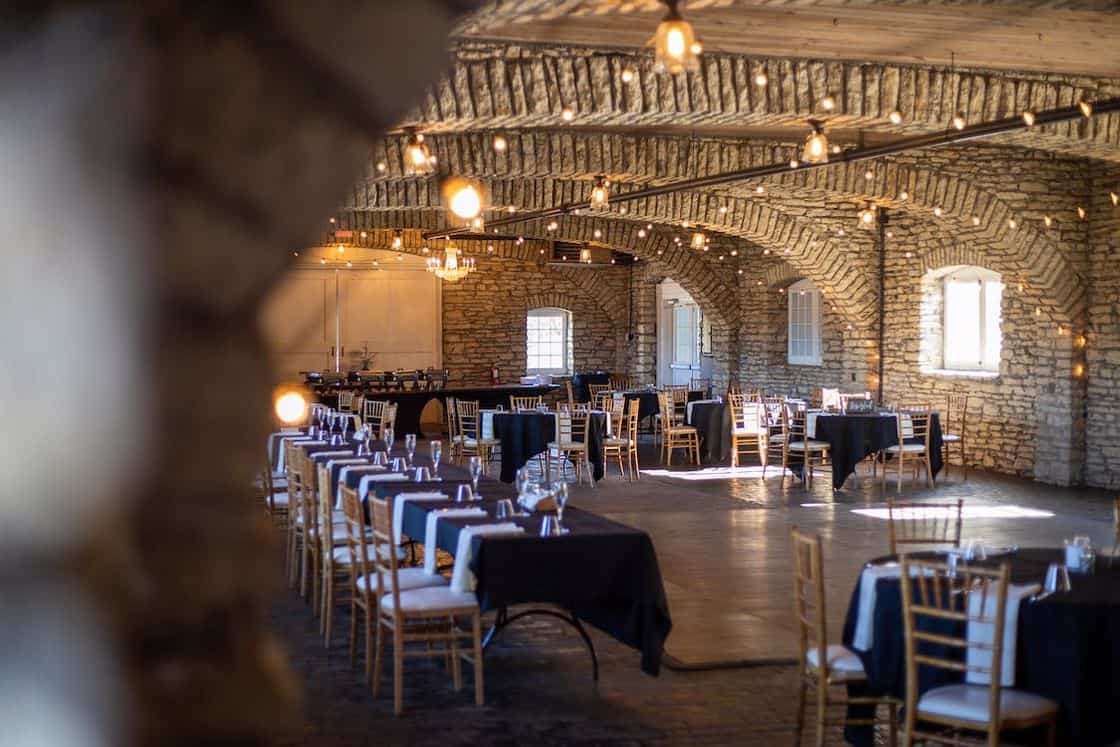Recognizing Event Production: Why It Is Very Important for Successful Celebrations
Event production plays a critical duty in forming effective gatherings. It includes cautious planning, sychronisation, and implementation to guarantee every detail aligns with the event's vision. This process not just boosts attendee experiences however additionally promotes significant links among participants. Recognizing the complexities of event production can significantly affect the overall result. What are the crucial elements that add to a successful event, and exactly how can they be properly managed?
The Function of Event Production in Developing Unforgettable Experiences
Although several aspects contribute to the success of an occasion, event production plays a critical role in crafting remarkable experiences. This complex procedure incorporates different aspects, including preparation, logistics, and implementation. Effective event production warranties that every detail straightens with the overall vision, producing a smooth circulation that captivates participants. By collaborating timelines, taking care of resources, and managing technological facets, event producers establish a structure for impactful experiences.Moreover, they curate settings that reverberate with the target market, improving interaction and psychological connection. From choosing appropriate venues to integrating innovative technology, the choices made during production considerably affect exactly how guests perceive and remember the event. By prioritizing quality and attention to detail, event production transforms common events into extraordinary moments, leaving long lasting impressions. Eventually, the competent orchestration of these elements defines the essence of an occasion, showcasing the relevance of expert event production in achieving remarkable outcomes.
Trick Parts of Successful Event Production
Effective event production pivots on several crucial components that ensure success. Preparation and coordination develop a strong foundation, while technical arrangement requirements attend to logistical needs. Furthermore, applying audience interaction approaches enhances the overall experience, making the event unforgettable.
Preparation and Coordination
Planning and control act as the backbone of successful event production, making certain that every information aligns effortlessly to produce a memorable experience. Efficient preparation involves establishing a clear vision and objectives, while sychronisation involves the thorough company of logistics, schedules, and resources. A well-defined timeline is vital, assisting all stakeholders via crucial milestones and tasks. Communication plays a critical role, promoting partnership among staff member, suppliers, and location team. Normal conferences and updates assist to attend to challenges quickly, making certain that everybody stays straightened with the event objectives. Ultimately, an organized technique to planning and sychronisation not only boosts efficiency but likewise substantially adds to the general success and enjoyment of the event for attendees and coordinators alike.
Technical Arrangement Needs
An effective event relies heavily on its technological arrangement demands, which include necessary elements such as audio-visual equipment, lights, staging, and connectivity. Audio-visual tools includes microphones, audio speakers, and projectors, making certain that presentations and efficiencies are provided clearly. Correct illumination boosts the ambiance and highlights key areas, while staging supplies the required system for speakers and entertainers. Connectivity, consisting of Wi-Fi and electrical accessibility, is important for smooth communication and modern technology combination. Each part should be meticulously prepared and executed, tailored to the event's details requirements. Poor technical configurations can lead to interruptions, adversely impacting the general experience for attendees, underscoring the value of extensive prep work and attention to detail in event production.
Target Market Involvement Strategies

The Importance of Planning and Coordination
Planning and sychronisation are essential to the success of any kind of event production. Effective timeline management, resource allotment techniques, and team communication dynamics play vital functions in making sure that all aspects integrated seamlessly. Without a structured approach to these facets, events risk encountering hold-ups, budget plan overruns, and miscommunication among team members.
Effective Timeline Monitoring


While effective event production usually depends upon creativity and execution, effective timeline management stays a necessary component that can not be forgotten. A well-structured timeline works as the backbone of any type of event, guaranteeing that each phase is carried out in a prompt way. It permits the sychronisation of different tasks, from venue setup to visitor arrivals, while preventing potential traffic jams. By plainly laying out target dates and duties, event planners can preserve focus and adapt to unforeseen obstacles. index In addition, a diligently crafted timeline cultivates interaction among employee, advertising accountability and partnership. Eventually, efficient timeline management not just improves operational performance however also adds considerably to the overall success and smooth implementation of the event, leaving guests with a memorable experience.
Source Allotment Strategies
Reliable resource allocation strategies are critical for the successful implementation of any type of event. Proper resource preparation allows event coordinators to determine and distribute sources, such as finances, employees, and materials, in a fashion that optimizes effectiveness. By evaluating the specific needs of each element of the event, coordinators can prioritize tasks and allocate resources accordingly. Control amongst different divisions makes sure that all components, from accommodating audiovisual demands, are sufficiently supported. This calculated approach not just reduces waste but additionally improves the overall experience for participants. Furthermore, expecting possible challenges and having contingency plans in place permits for smoother procedures. Ultimately, reliable resource allotment adds considerably to attaining event goals and guaranteeing a remarkable event.
Team Interaction Characteristics
Exactly how can smooth communication amongst team members transform the event production process? Reliable interaction is important for coordinating jobs, sharing updates, and attending to obstacles in real-time. When group participants involve in open dialogue, they can promptly identify possible concerns and establish services collaboratively, decreasing delays and misconceptions. This dynamic fosters a natural atmosphere where every person recognizes their functions and duties, causing a more integrated initiative. In addition, normal check-ins and comments loops boost liability and guarantee alignment with the event's purposes. By focusing on interaction strategies, groups can simplify process, boost morale, and eventually raise the general top quality of the event. Successful events hinge on the ability to interact properly, making it an essential component of event production.
Enhancing Attendee Interaction Through Creative Layout
Imaginative design plays a crucial duty in improving participant involvement at events, as it cultivates an immersive atmosphere that captivates participants' focus. By integrating innovative visuals, interactive elements, and thematic decor, event planners can develop unforgettable experiences that reverberate with guests. Thoughtful format designs promote motion and exploration, urging guests to engage with screens advice and each other.Incorporating technology, such as increased truth or live polling, more enriches the experience, enabling for real-time responses and interaction. Additionally, sensory components like lights, audio, and scent can evoke emotions and produce a much more engaging atmosphere.The usage of storytelling via style assists share the event's objective and message, making it extra relatable for guests. Eventually, innovative design not only enhances involvement but additionally grows links among participants, leaving an enduring perception that prolongs beyond the event itself. This calculated approach to layout is vital for successful celebrations.
Handling Logistics for a Smooth Implementation
While the excitement of an event can attract attendees in, taking care of logistics is crucial to protect a smooth implementation. This involves meticulously working with various aspects, from location option and format to wedding catering and transportation. Reliable logistics management guarantees that all elements straighten, allowing for a smooth flow from registration to the final thought of the event.Additionally, a clear communication plan among all stakeholders is necessary. This includes staff, vendors, and volunteers, who must be educated of their roles and duties. Expecting prospective difficulties, such as devices failing or unexpected weather problems, can better improve the event's success.Creating a comprehensive timeline aids keep the group on track and allows for prompt modifications. Ultimately, well-managed logistics not just help with an enjoyable experience for participants yet also reflect the professionalism and reliability and integrity of the organizers, adding to the overall success of the event.

The Effect of Modern Technology on Event Production
What function does modern technology play fit contemporary event production? Innovation has become a cornerstone of reliable event production, boosting both planning and execution procedures. From sophisticated registration systems to interactive apps, technology simplifies attendee monitoring and enhances involvement. Virtual event systems allow coordinators to reach wider audiences, breaking geographical barriers and assisting in hybrid events that integrate in-person and on-line experiences.Additionally, audiovisual technologies, such as high-definition displays and sound systems, boost the high quality of discussions and performances, ensuring a memorable experience for guests - event production charlotte. Social media combination allows real-time responses and communication, fostering neighborhood interaction in the past, throughout, and after the event. Information analytics tools aid coordinators in monitoring participant behavior and preferences, allowing tailored experiences that reverberate with varied target markets. In general, the integration of innovation in event production not just boosts functional performance however likewise enhances participant experiences, inevitably contributing to the success of the event
Reviewing Success: Determining the Results of Your Event
Success in event production pivots on reliable evaluation, which includes measuring a range of results to analyze the total impact of an occasion. To achieve this, organizers can employ both qualitative and quantitative metrics. Quantitative actions might consist of participation figures, ticket sales, and revenue created, while qualitative assessments might involve guest fulfillment studies and feedback forms.Additionally, evaluating social networks involvement and media coverage can offer understandings right into the event's reach and brand name influence. Comparing these metrics versus predefined goals aids establish if the goals were met.Furthermore, post-event debriefs with the planning team can uncover lessons discovered and locations for improvement. By methodically examining these results, event manufacturers can boost future events, making sure continual growth and success. Eventually, a detailed evaluation not only highlights accomplishments but also informs calculated decisions for succeeding events, promoting a culture of quality in event production.
Regularly Asked Inquiries
What Credentials Should an Event Producer Have?
Event manufacturers need to possess strong organizational abilities, imagination, and efficient communication capabilities. A history in task management, budgeting, and negotiation is vital. Relevant certifications and experience in diverse event kinds better improve their certifications.
How Can I Decrease Event Production Prices Effectively?
To effectively reduce event production prices, one can improve vendor option, work out contracts, make use of in-house sources, focus on important components, implement innovation for performance, and check out sponsorship chances to offset costs without jeopardizing top quality.
What Are the Usual Challenges in Event Production?
Usual obstacles in event production consist of budget restraints, logistical control, vendor management, time constraints, participant engagement, technical difficulties, and unexpected situations - event production charlotte. Each aspect can considerably influence the total success and smooth execution of the event
How Do I Choose the Right Place for My Event?
Picking the appropriate place involves considering aspects such as location, ability, features, and budget plan. Furthermore, examining ease of access and atmosphere ensures the chosen room lines up with the event's goals and enhances the overall attendee experience.
What Is the Normal Timeline for Planning an Occasion?
The normal timeline for preparing an occasion varies, yet typically consists of stages such as principle advancement, location option, supplier sychronisation, promo, and final preparations, frequently covering several months to guarantee an effective execution.
Comments on “Why internal events thrive with event production charlotte expertise”